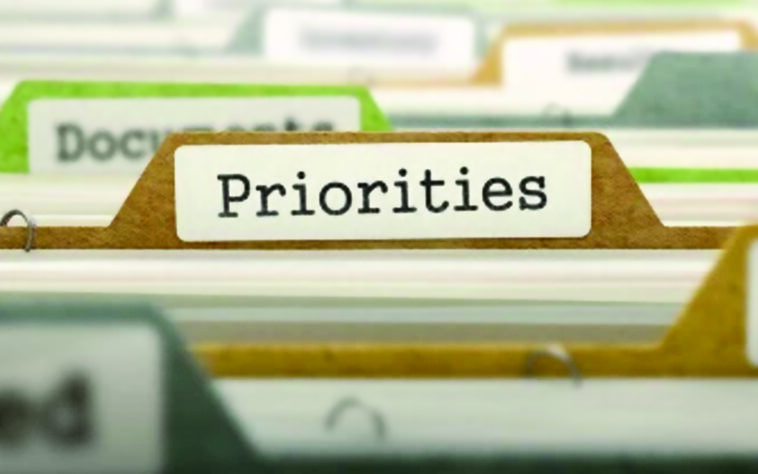Living in today’s fast-paced and demanding world can often leave you feeling overwhelmed and stressed. From work pressures to personal challenges, the constant barrage of stimuli can take a toll on your mental and emotional well-being. You may worry about current events, your financial situation, or the political atmosphere. Amidst the chaos, there are strategies you can use to cope effectively and navigate through the overwhelming nature of modern life.
1. Seek Professional Help

When faced with overwhelming emotions, seeking professional help can be an important step toward finding relief. Therapists are trained to provide support in navigating through life’s challenges. By entering into therapy or mental health rehab, you can gain valuable insights into your thought patterns, behaviors, and emotions. It will allow you to develop healthier coping mechanisms and strategies for managing stress.
Therapeutic interventions may include cognitive-behavioral therapy, psychoanalysis, humanistic therapy, or integrative therapy. Cognitive-behavioral therapy focuses on both thoughts and behaviors. There are also individual approaches of cognitive therapy and behavioral therapy. Psychoanalysis works to change behaviors or feelings through uncovering unconscious motivations. Humanistic therapy works to develop your best self through making rational choices with respect for others. Lastly, integrative, or holistic, therapy is a mixture of treatment types.
These therapies can give you practical tools to cope with overwhelming situations. Beyond individual counseling types, there are group options. Support groups and peer counseling can provide a sense of community and understanding. They remind you that you are not alone in your struggles. By reaching out for professional help, you can build resilience in the face of adversity.
2. Take Care of Yourself
Thankfully, self-care has gotten a lot of publicity in recent years. Making people aware of the importance of taking care of themselves is beneficial. However, more often than not, people tend to think that self-care involves things that are expensive or impractical. You don’t need to buy yourself a $5 iced coffee every day to support yourself. And perhaps a bubble bath is the last thing you’d enjoy. But solutions like these are often touted as common self-care approaches.
When you think of self-care, think of things that are helpful for you as an individual. Maybe putting on your PJs right after work, cooking a frozen pizza, and playing video games will soothe your soul. Or perhaps a long phone call with a friend is all you need. Don’t depend on what the latest trends are, but rather focus on yourself and activities that are specific to you.
Self-care also refers to the physical necessities of life that often get overlooked when you’re feeling overwhelmed. Eat healthy foods, including plenty of fresh vegetables and fruits, whole grains, and lean meat. Get some exercise, even if it’s just a quick walk around the block. Drink eight glasses of water each day to stay hydrated. And keep a good sleep schedule, getting around eight hours of sleep each night.
3. Practice Mindfulness

Mindfulness refers to the process of focusing on what is going on around you (or within you) without judging it. You create a self-awareness, allowing yourself to pay attention to your thoughts and emotions without being overwhelmed by them. One way to ground yourself using mindfulness is with the 5-4-3-2-1 technique.
Begin by naming five things you can see. The office door, your computer, a book, and so on. Take a moment to listen and name four things you can hear. For instance, a bird singing outside, a horn honking, people talking in the hall. What three things can you touch? The smoothness of the wood on your desk, the cool window pane, the soft carpet beneath your feet. Notice two things you can smell. Like, the pages of a book and the smell of someone’s lunch in the microwave. Lastly, name one thing you can taste, such as the iced coffee you picked up on the way to work.
This technique makes you take note of your senses and requires you to concentrate. It takes your mind away from out of control thoughts and feelings and draws you in toward yourself. Deep breathing techniques work similarly to cause you to slow down and move away from overwhelming thoughts. Simply breathe in slowly through your nose, mentally counting to five. Hold your breath for just a second, then slowly exhale through your mouth to the count of five.
4. Determine Your Priorities

You are feeling overwhelmed — either by personal tasks or your professional life or both. It may be time to take a moment and determine your priorities. Take a look at your to-do list. If you don’t have one, make one. Don’t forget to include self-care and family time on that list. Those are just as much a to-do as the monthly finance report at work.
Looking at your list, figure out what can be put off for another day. If possible, delegate some tasks to others. If you have to wash the dishes and vacuum the den, recruit family members to help out. If work projects are overwhelming you, see if you can get help from a co-worker to ease the strain you’re feeling.
As you work through your to-do list, only do one thing at a time. If you try to do two things at once, such as taking a phone call while filling out a report, you may make mistakes. You may also take longer to complete both tasks than if you had done them each individually. Multitasking has been proven to reduce your ability to get things done by interfering with your attention span, comprehension, and performance.
Overcoming Overwhelm
Navigating an overwhelming world requires an approach that addresses both the external stressors and internal coping mechanisms. By following these tips, you can equip yourself with the tools needed to thrive in the face of adversity. Remember, you are not alone in your struggles. There is always help and support available. By utilizing these strategies, you can grow a greater sense of balance, peace, and well-being, even during life’s most challenging moments.





